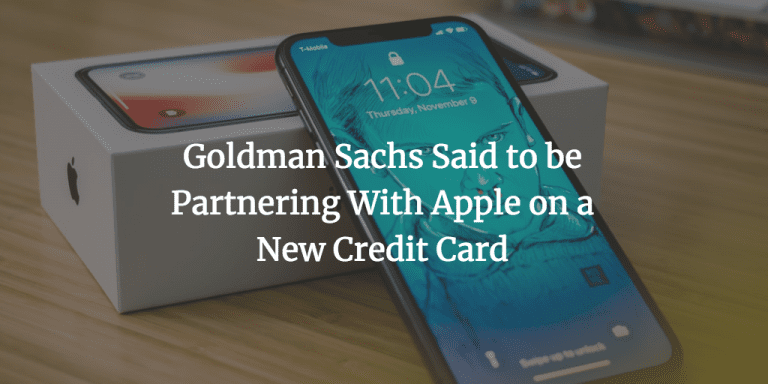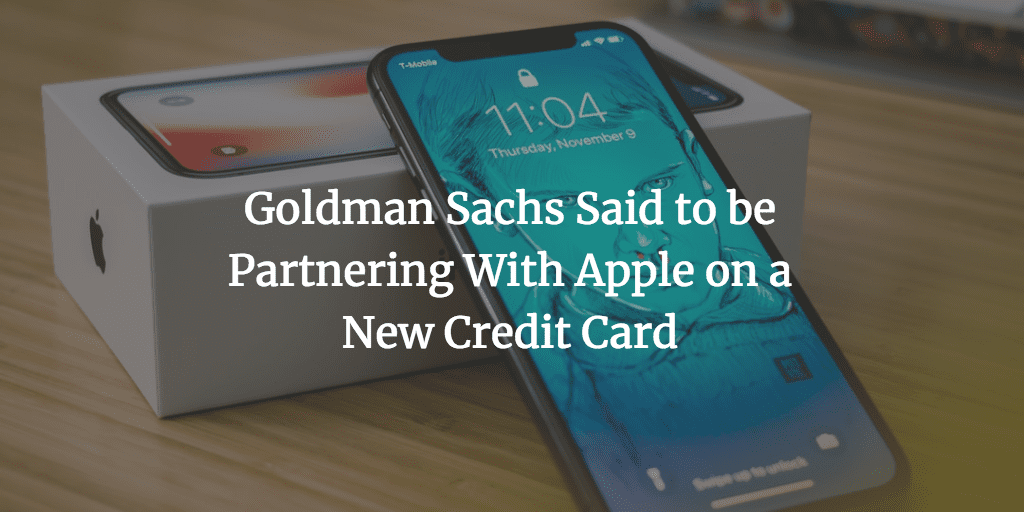On stage last month at LendIt Fintech USA 2018 Omer Ismail, the Chief Commercial Officer for Marcus by Goldman Sachs, said that one of the new products his firm was looking at was credit cards. Not that surprising, really, for a company working hard to grow their consumer finance business.
Earlier today the Wall Street Journal broke the story that Goldman Sachs would be partnering with Apple on a new credit card. When I was thinking about potential ways Marcus would launch a credit card, a partnership with Apple was not what came to mind. It points to the many advantages that Marcus has over pretty much every other fintech company. They have the Goldman Sachs name behind them and have deep relationships with some of the largest companies on the planet. That opens doors that are simply not available to even the more established fintech platforms.
So how will this partnership work? I reached out to Goldman Sachs but not surprisingly they had no comment, so we will have to go with the information in the WSJ article:
The planned card would carry the Apple Pay brand and could launch early next year, people familiar with the matter said. Apple will replace its longstanding rewards-card partnership with Barclays, the people said.
Apple has had a card relationship with Barclays going back to 2005 so this is a significant move on Apple’s part as well. Given this is going to be an Apple Pay branded card Apple is clearly focused on building that part of the business. The WSJ states that the economics of any Apple Pay transaction would be significantly improved with this new Marcus card.
For Marcus this will be a way to enter the lucrative credit card space with a bang. Even though Apple Pay has not taken off as quickly as many expected there are over 100 million active Apple Pay users globally. This represents a large and lucrative market for Marcus and will enable them to ramp up their credit card book quickly.
My Take
Omer said at LendIt, “Marcus is looking for large opportunities where Goldman Sachs has a competitive advantage and there are unmet needs.” As much as we have been focused on consumer loans with Marcus the credit card market is huge and continues to grow with over $1 trillion in total revolving credit outstanding. It is a bigger business than personal loans and one that Marcus should be in given their goals.
Another advantage for Marcus is they have no legacy credit card product. Like they did with personal loans they can start from scratch and build a product based on extensive consumer feedback. Now, there will be challenges for sure. The WSJ pointed out that this move does not come without risk. While they have no legacy products they also have no infrastructure to be able to issue credit cards and process payments for merchants. That is true but these are things that can be built.
Goldman Sachs has shown they are playing the long game here. They are building a 21st century digital consumer bank right before our eyes. While not everything they do will be successful I expect they will become a significant player in credit cards. Just like they have in personal loans where they have become the fast growing company ever in that category.



